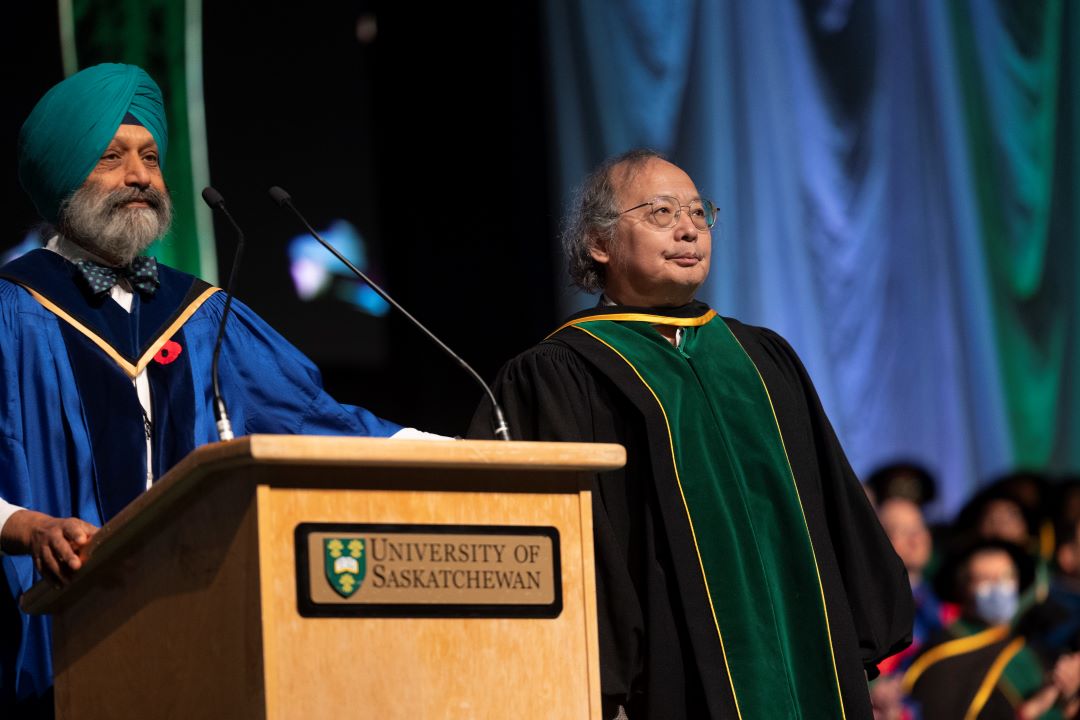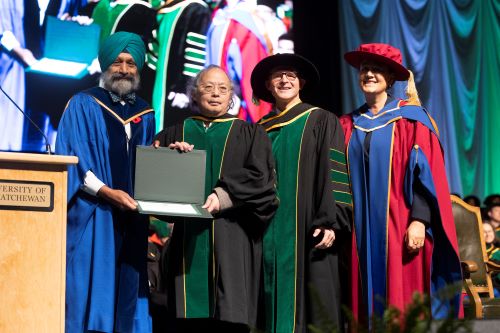
Zhang receives USask Distinguished Researcher award
Dr. Wen Jun (Chris) Zhang (PhD) was awarded the University of Saskatchewan's (USask) top honour of Distinguished Researcher.
By Research Profile and ImpactDr. Chris Zhang is an internationally recognized researcher who has contributed his talents to the USask for more than two decades, making a wide array of multidisciplinary research contributions.
“I’m very happy to receive this award,” said Zhang, professor of mechanical engineering in the College of Engineering. He considers the honour a recognition of his multidisciplinary research accomplishments since joining USask in 1988 as a mechanical engineer with a background in engineering design.
USask's Vice President Research presented the award to Zhang during fall convocation ceremonies on Nov. 9.
Zhang has since made landmark advances that cover a wide spectrum of areas, including nano manufacturing, robotics, bio-mechatronics, critical network systems, informatics, and biomedical engineering. Among his dozens of research accomplishments and contributions, he points to three that have received a great deal of international attention.

The second is his contribution to defining engineering resiliency. Resiliency is a concept well known in ecology, but one that didn’t gain wider attention until the 9/11 attacks exposed vulnerabilities of engineering and financial systems, Zhang said. “I was in the discussion when a book about engineering resilience came out in 2006 and pioneered using the resiliency concept to develop a resilient robotics system,” he said.
After the 2008 financial crisis, he proposed a new concept of a resilient wholistic supply chain that’s not just one chain but several chains—financial, property and manufacturing—intertwined into a network. Using a technique he developed to simulate a potential collapse of the chain, decision-makers will have early warning to take mitigation measures, he said.
The third is in biomedical engineering, where Zhang developed a protocol to ablate brain tumours while at the same time using the “transient window” created in the blood-brain barrier to deliver chemotherapy drugs precisely to the tumour site.
Zhang has supervised 38 PhD students, 114 master’s students and 53 post-doctoral fellows, visiting fellows and research associates. He has produced 361 refereed journal articles, 17 books and book chapters, 222 refereed conference papers, and holds 23 patents and invention disclosures.

